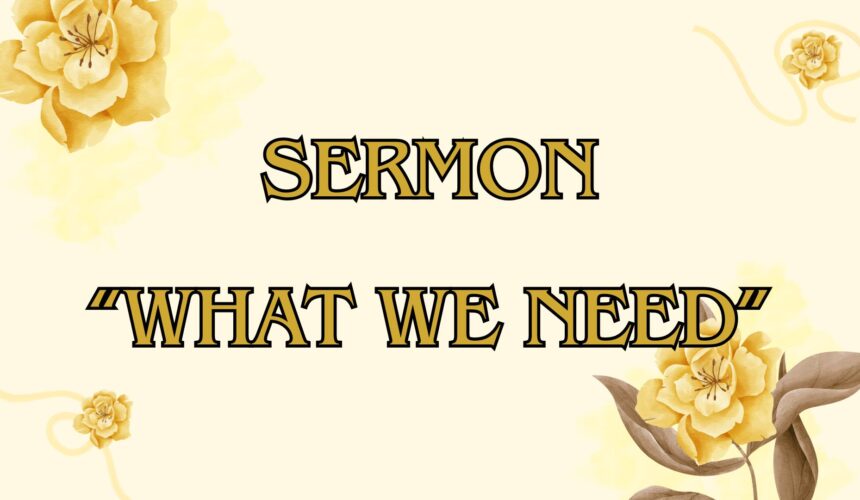2nd Sunday in Easter
April 27, 2025
John 20:19 – 29
I grew up in a small Methodist Church, and I was very lucky. Not everybody gets a childhood church experience like mine. I grew up hearing good preaching, for one thing. I can still remember parts of sermons from fifty years ago. The Music program of our church was outstanding, kind of like ours here.
Not only did we have a strong children’s ministry and youth group, but the congregation was full of adults who cared about us and wanted to know about our lives. People took an interest in my faith development and in the faith development of other children and youth in the congregation. They encouraged me to voice doubts and ask questions. They pushed me and challenged me; they provided an example for me. Vincent Harding, who was a professor at Iliff for years, once described the church of his childhood by saying the adults there held a crown above his head and simply expected him to rise high enough to wear it. That was my experience, and I knew it was similar for other kids who grew up in my home church.
As often happens in small towns, many of the people in my church were also people I saw Monday through Friday: teachers, business owners, police, the local librarian, people like that. The place truly was a community congregation, the way a lot of Methodist Churches tend to be: if no other church felt like home, you could probably find a home at ours.
When I was a young adult coming back home after college, the woman who was Pastor at the time told me this was not a typical church; this was the kind of assignment Pastors wait their whole careers to get, and after they leave they look back on it fondly.
Of course, there’s no such thing as a perfect church, and this one certainly wasn’t. There were church fights and drama and some serious problems over the years. But the place was steeped in grace, and it set my expectations of what a church can be.
So I grew up knowing the profound difference a good church experience can make. But it wasn’t until years later when I became a Pastor that I began to see the kind of emotional damage a bad church experience can inflict. More than 20 years ago now, I got to know a woman who was brought up in what I think we’d have to call religious abuse. Her family talked about God a lot. They read the Bible a lot. They went to church a lot. But their God was kind of an abusive parent – which was not too surprising, considering the behavior of her own parents. She was taught that God had very strict rules. If she broke one or was even tempted to break one, God would probably send her to hell – and her parents got a head start on hell by punishing her themselves. She was taught she was worthless. The only reason she was still alive was that God chose to forgive her even though she offended God deeply. In short, she had a punitive, terrifying childhood that kept her from feeling at home anywhere.
Eventually, she grew up and left home. Not surprisingly, she ran into problems with addiction. She had several marriages, none of which lasted long. But gradually she began to find healing. She got into therapy, started attending 12 Step Meetings. She developed a network of friends. And eventually, in a moment I can only attribute to a combination of her remarkable courage and God’s guidance, she found her way into a little church that was maybe not too different from the one where I grew up. And slowly, she began to receive what she needed for her healing. Every week in worship, she began to hear about a God of grace.
Now you might think this would be a welcome relief for her. And in some ways it was. But she told me once that for the first few months she attended that little Methodist church, she would go home after worship and weep. Everything she had believed about God was being torn out by the roots. She was grieving all the damage that had been done by her childhood church, not just to her but to others. She was revisiting the pain of her upbringing, coming to terms with the depth of her parents’ betrayal, the way they twisted the message of Christianity into something poisonous and hateful.
By the time I got to know her, she was considerably further along in her healing. In fact, she was flourishing. She sponsored people in her12 step group. She volunteered with a couple nonprofits, serving others as part of her continued recovery. When I met her, my first impression was that here was a wise and joyful and funny woman, easy to talk with and great to be around. I learned her story over time, as I got to know her. And as I did, I found myself thinking about the God of the resurrection story we heard this morning from John’s Gospel.
This passage is often called the story of Doubting Thomas, and it’s often read with a focus on Thomas’s failure to believe. But I don’t think that’s what it’s about. I think if we zoom out, see the broader picture, it becomes a story about the God my friend met, the God who drew her in and gently helped her recover her spiritual and emotional health.
In this passage, Jesus appears to his followers twice. The first is after Mary Magdalene has discovered the empty tomb and met the risen Christ. John’s Gospel tells us that evening, followers of Jesus were gathered in a locked room “for fear of the Jews.”
Now, brief excursion here.
I imagine you might be sick of hearing me say this, because I often say it when I preach from the Gospel of John. But John often uses the phrase “the Jews” to describe the villains of the story, and that phrase is one of the historical sources of Christian antisemitism – so in a way, I almost can’t say this enough. Whenever we read the words “the Jews” in John’s Gospel, it’s best to mentally substitute a different phrase like “the Jewish leadership.” Some translations actually do this because it’s more historically accurate. The Jewish opposition to Jesus came from some of the Jewish leaders in Jerusalem. But it’s important to remember that everybody in the story is “the Jews.” Jesus, Mary Magdalene, Peter and all the rest of the disciples, they’re all Jews. So this blanket term “the Jews,” is not historically accurate at all, and I always feel the need to say that because of the ancient stereotype that “the Jews killed Jesus.” That’s a toxic idea that has caused endless amounts of pain, and we need to reject it whenever we see it.
- End of excursion, back to the sermon.
So Jesus’ followers are hiding out. They’re huddled together in a locked room. And suddenly, Jesus is standing right there among them.
Now it seems to me that if there were ever a moment for Jesus to lose it and go off on these guys, to be angry and blame and condemn them, this would be the time. The day of his arrest, he told them: “you did not choose me. I chose you.” So these disciples – or at least, some of the people in that room – are his handpicked inner circle. For three years they’ve been together, learning to embody his way of life in community. And then at a key moment, when the chips are down, Judas betrays him. Peter denies ever knowing him – three times. The rest of them scatter and run for it. And now here they are hiding behind a locked door. In this situation, Jesus would have every reason to say, “Thanks a lot, guys! Way to come through for me! Remember that stuff I told you about those who try to save their life will lose it? Do not fear, for I am with you always? Ring any bells? Hello?”
But of course, Jesus doesn’t say any of that. Instead, he says, “peace be with you. As God has sent me, so I send you.” And John has this beautiful phrase: “he breathed on them and said, ‘receive the Holy Spirit.’”
To get the significance of this, I think it helps to remember that in the first creation story in Genesis, the first few sentences of the Bible, we read that in the beginning, a wind or breath or spirit – the same Hebrew word means all three things – in the beginning of creation, a wind or breath or spirit of God is moving. I think symbolically, when he breathes on his followers, Jesus is creating a new people, a people who will embody his way of life. And part of what I love about this gesture is that he’s creating that new people out of the very same people who have denied and deserted and failed him. Instead of rejection and anger and condemnation, he gives them forgiveness and grace. He gives them what they need to be the people he calls them to be.
Now Thomas, one of the 12, is not with them when this happens. He’s quite literally out of the room. When they tell him what happened, he says he won’t believe unless he can touch Jesus’ wounds for himself. So a week later, they’re gathered again. This time Thomas is with them. Once more, Jesus appears, saying “peace be with you.” And he turns to Thomas and invites him to touch his wounds. He offers the very thing Thomas has said he needs to be a follower of the risen Christ.
Like I said, I don’t think this is a story about Thomas’s doubt. I think it’s a story about grace, forgiveness, redemption: about being invited into God’s family no matter what our failings or shortcomings may have been. I think this is a story about how God gives us what we need to be faithful.
Myself, I don’t feel the need to meet Jesus face to face or touch his wounds. But I’ll tell you what I do need. I need courage to meet these conflictual times. I need discernment, to know what I’m called to say and do as a Christian, and when I’m called to say and do it.
I experience myself as having failed and deserted Christ all the time. I try not to do that, but like a lot of people, I get scared. I forget that thing about how he will be with us always. So I run away and hide. I lock the doors. I need further evidence, or at least that’s what I tell myself.
But I think this is a resurrection story for our time. I think it’s a resurrection story for all of us now. It tells us that as confused as we may be, as hesitant or scared or helpless as we may feel, God wants to give us what we need to be faithful, to pull us out from behind those locked doors, to embody the faith that has been given to us. It won’t be easy. Christianity never is. But even when it’s not easy, grace makes it possible.


